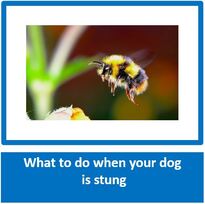
Can we feed Sardines to our dogs?

When it comes to feeding Sardines to pets, our first thought may be, wonderful for cats and a real treat - but feeding to dogs?
Sardines are a wonderful addition to your dog's food as you will see with the many benefits mentioned below, and either added into the actual food, or given a few times a week as a delicious treat. Just bear in mind, that when we are talking about sardines for dogs, we are talking about fresh, frozen sardines, not those that are slathered in sauces, such as oil, mustard, ketchup, or added salt.
We all know that fresh is always best, and supplies the best source of nutrients, however, if you do not have fresh/frozen sardines available, you can always look at the canned option, but as above, not slathered in any sauces, and you need to read the label and make sure no added salt, artificial flavours, spices and preferably not packed in oil - water is the best option - both for safety and also weight management.
Most plant oils are safe and nutritious for dogs, however, they could be providing far too many Omega 6 fatty acids, and this can lead to inflammation, especially if your dog is already getting an ample supply of omega 6 fatty acids in their regular diet.
The Mercury Myth
Over the years, there has been more and more controversy about mercury toxicity, and some pet owners are hesitant, not just to avoid fish themselves, but also worry about feeding to their pets as well.
The fact is that there is mercury in our oceans and seas, and it absorbs into every living organism that either lives, or eats something that live in the ocean and seas, whether the smallest plankton, right through to the largest predator - mercury will accumulate in their bodies. Mercury is a naturally occurring element, that is found in air, water and food.
Smaller fish such as salmon, scallops, sardines, anchovies and shrimp tend to contain trace amounts of mercury, compared to larger predators such as bigeye tuna, swordfish, king mackerel and sharks.
Over time, the trace amounts of mercury in sardines can accumulate in your pet, so it is important to limit the amount of fish, and fish oils that are added to the diet.
Over time, the trace amounts of mercury in sardines can begin to accumulate in your pet, so it’s important to limit how much fish and fish oils you add to your pet’s diet, and use sardines as supplements and in small portions. This will allow time for your pet’s body to eliminate mercury through their urine and waste.
The wonderful benefits of sardines
Promotes Heart Health
Sardines are rich in numerous nutrients that have been found to support cardiovascular health.
They are one of the most concentrated sources of the omega-3 fatty acids EPA and DHA, which have been found to lower triglycerides and cholesterol levels; one serving (100g) of sardines actually contains over 50% of the daily value for these important nutrients. Sardines are an excellent source of vitamin B12, ranking as one of the World’s Healthiest Food most concentrated in this nutrient. Vitamin B12 promotes cardiovascular well-being since it is intricately tied to keeping levels of homocysteine in balance; homocysteine can damage artery walls, with elevated levels being a risk factor for atherosclerosis.
Promotes Bone Health
Sardines are not only a rich source of bone-building vitamin D, a nutrient not so readily available in the diet and one that is most often associated with fortified dairy products. Vitamin D plays an essential role in bone health since it helps to increase the absorption of calcium. Sardines are also a very good source of phosphorus, a mineral that is important to strengthening the bone matrix. Additionally, as high levels of homocysteine are related to osteoporosis, sardines’ vitamin B12 rounds out their repertoire of nutrients that support bone health.
Promotes Optimal Health
For many years, researchers have known that vitamin D, in the form of calcitriol, participates in the regulation of cell activity. Because cell cycles play such a key role in the development of cancer, optimal vitamin D intake may turn out to play an important role in the prevention of various types of cancer.
Packed with Protein
Sardines are rich in protein, which provides us with amino acids. Our bodies use amino acids to create new proteins, which serve as the basis for most of the body’s cells and structures. Proteins form the basis of muscles and connective tissues, antibodies that keep our immune system strong, and transport proteins that deliver oxygen and nutrients throughout our bodies.
Feeding Sardines
We always recommend slowly introducing new foods in smaller portions to allow your dog to adjust. Start with small bite-sized portions and slowly work your way up to whole fish. Sardines are wonderful to add in as an extra treat, and as a supplement. Sardines are a must have for any dog, of any age and any size. They can be fed whole, chopped, minced, and they can also be cooked - but only gently steamed so that they retain the nutrients.
Sardines are both calorie and nutrient-dense, so a little goes a long way. Just one small sardine can contain up to 25 calories, approximately half from fat, and half from protein. They are rich, so make sure you are feeding an appropriate amount, and account for these extra calories in your pet’s regular feeding guidelines.
If you can source fresh sardines, keep in mind that they might be larger than the canned ones. The majority of dogs will happily chew through the skin and bones with no problem, however if you have very large sardines, and are worried about choking, then just remove the backbone of the sardine before feeding.



